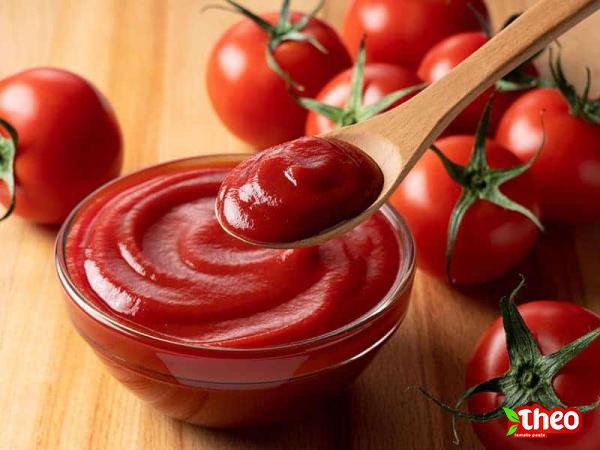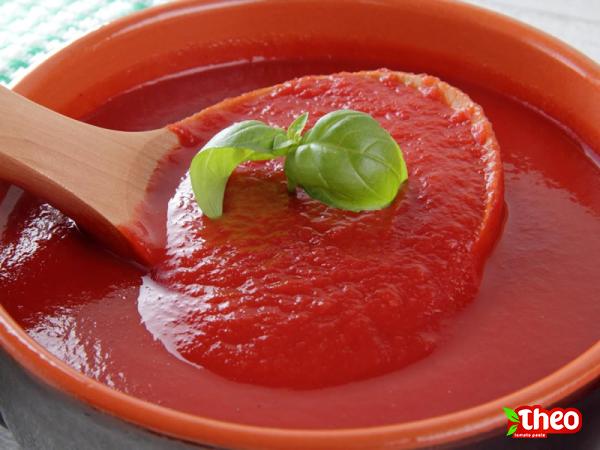A Comprehensive Overview Introduction: Canned tomatoes are a versatile and essential ingredient for making delicious sauces. They provide convenience, long shelf life, and a consistent flavor that can enhance a multitude of culinary creations. In this article, we will explore the world of canned tomatoes for sauce, discussing their benefits, types, selection criteria, and ways to use them. Benefits of Using Canned Tomatoes for Sauce: 1. Convenience: Canned tomatoes are readily available and can be stored for an extended period, making them a convenient choice for those who want to have a meal-ready ingredient on hand. 2. Year-Round Availability: Canned tomatoes ensure year-round access to high-quality tomatoes, maintaining consistency in flavor and texture regardless of the season or geographic location. 3. Time-Saving: Canned tomatoes eliminate the need for time-consuming tasks like peeling, deseeding, and chopping fresh tomatoes, allowing for a quicker and more efficient sauce preparation process. 4. Consistency: Canned tomatoes are harvested at peak ripeness and are processed immediately, ensuring a consistent flavor and texture in each can. Types of Canned Tomatoes: 1. Whole Peeled Tomatoes: These are whole tomatoes packed in their juice, usually peeled and free from the outer skin. They offer versatility and are ideal for creating chunky or smooth tomato-based sauces. 2. Crushed Tomatoes: Crushed tomatoes are a popular choice for sauces, as they maintain some texture while still being smooth. They are made by crushing peeled tomatoes, which results in small to medium-sized pieces. 3. Tomato Puree: Tomato puree is created by straining crushed tomatoes to remove any seeds or large chunks. It is a smooth, concentrated sauce base that forms the backbone of many sauce recipes. 4. Tomato Sauce: This type of canned tomato product is often pre-seasoned and blended to create a smooth sauce consistency. Tomato sauce is commonly used in recipes that require a straightforward, well-balanced tomato taste. 5. Diced Tomatoes: Diced tomatoes are cut into small cubes and packed in their juice. They provide texture and are commonly used to add depth to sauces or dishes where a chunkier tomato presence is desired.
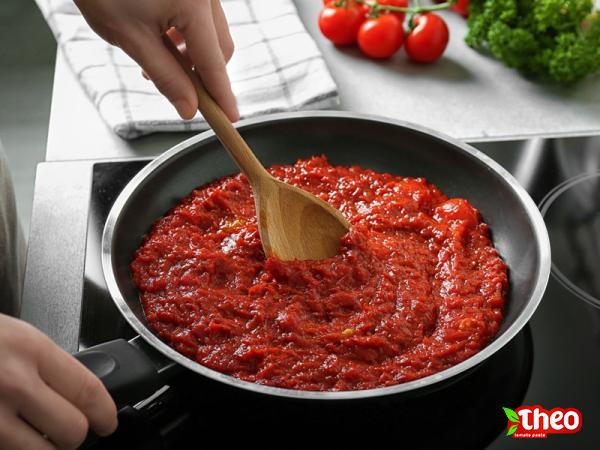
tomato paste
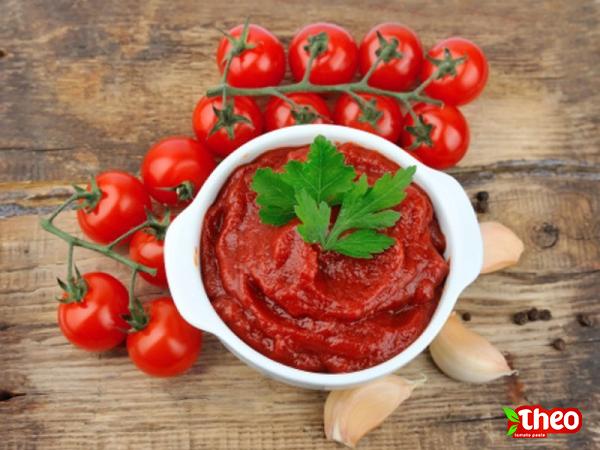 Key Considerations When Selecting Canned Tomatoes for Sauce: 1. Quality: Look for reputable brands known for using high-quality tomatoes and minimal additives. Read product labels to ensure there are no artificial preservatives, colors, or flavors. 2. Packaging: Choose cans that are free from dents, bulges, or leaks, as these may indicate compromised quality or potential spoilage. 3. Tomato Variety: Different tomato varieties can impart unique flavors to your sauce. Consider San Marzano tomatoes for a rich, sweet flavor, or plum tomatoes for their meaty texture. 4. Salt Content: Pay attention to the salt content in the canned tomatoes, as it can vary across brands. Opt for low or no-salt-added options if you prefer to control the level of sodium in your sauces. 5. BPA-Free: Look for cans labeled as BPA-free to avoid any potential health concerns associated with the chemical bisphenol A. Ways to Use Canned Tomatoes for Sauce: 1. Classic Marinara Sauce: Simmer crushed tomatoes, garlic, onions, herbs (such as basil and oregano), and olive oil for a traditional marinara sauce that can accompany pasta dishes or serve as a pizza base. 2. Creamy Tomato Sauce: Combine tomato puree with cream or coconut milk for a luscious, velvety tomato sauce that pairs well with meat, pasta, or vegetables. 3. Spicy Arrabbiata Sauce: Add some heat to your sauce by cooking crushed tomatoes with chili flakes, garlic, and olive oil. This spicy arrabbiata sauce complements pasta dishes with a fiery kick. 4. Tomato-Based Meat Sauces: Enhance your Bolognese or meat sauce by starting with a base of canned tomatoes. It allows you to infuse rich flavor and tenderize the meat to perfection. 5. Tomato Soup: Blend canned tomatoes with broth, onions, garlic, and herbs to create a comforting, homemade tomato soup. Conclusion: Canned tomatoes provide a convenient and reliable option for creating luscious tomato-based sauces all year round. With their versatility, long shelf life, and consistent flavor, they are an essential pantry staple for any aspiring chef or home cook. By considering the different types of canned tomatoes available and selecting them based on quality, packaging, and specific requirements, you can elevate your sauce game and transform your culinary endeavors into impressive masterpieces.1. Market Overview: The Growing Demand for Canned Tomatoes
Key Considerations When Selecting Canned Tomatoes for Sauce: 1. Quality: Look for reputable brands known for using high-quality tomatoes and minimal additives. Read product labels to ensure there are no artificial preservatives, colors, or flavors. 2. Packaging: Choose cans that are free from dents, bulges, or leaks, as these may indicate compromised quality or potential spoilage. 3. Tomato Variety: Different tomato varieties can impart unique flavors to your sauce. Consider San Marzano tomatoes for a rich, sweet flavor, or plum tomatoes for their meaty texture. 4. Salt Content: Pay attention to the salt content in the canned tomatoes, as it can vary across brands. Opt for low or no-salt-added options if you prefer to control the level of sodium in your sauces. 5. BPA-Free: Look for cans labeled as BPA-free to avoid any potential health concerns associated with the chemical bisphenol A. Ways to Use Canned Tomatoes for Sauce: 1. Classic Marinara Sauce: Simmer crushed tomatoes, garlic, onions, herbs (such as basil and oregano), and olive oil for a traditional marinara sauce that can accompany pasta dishes or serve as a pizza base. 2. Creamy Tomato Sauce: Combine tomato puree with cream or coconut milk for a luscious, velvety tomato sauce that pairs well with meat, pasta, or vegetables. 3. Spicy Arrabbiata Sauce: Add some heat to your sauce by cooking crushed tomatoes with chili flakes, garlic, and olive oil. This spicy arrabbiata sauce complements pasta dishes with a fiery kick. 4. Tomato-Based Meat Sauces: Enhance your Bolognese or meat sauce by starting with a base of canned tomatoes. It allows you to infuse rich flavor and tenderize the meat to perfection. 5. Tomato Soup: Blend canned tomatoes with broth, onions, garlic, and herbs to create a comforting, homemade tomato soup. Conclusion: Canned tomatoes provide a convenient and reliable option for creating luscious tomato-based sauces all year round. With their versatility, long shelf life, and consistent flavor, they are an essential pantry staple for any aspiring chef or home cook. By considering the different types of canned tomatoes available and selecting them based on quality, packaging, and specific requirements, you can elevate your sauce game and transform your culinary endeavors into impressive masterpieces.1. Market Overview: The Growing Demand for Canned Tomatoes
Specifications of tomato paste
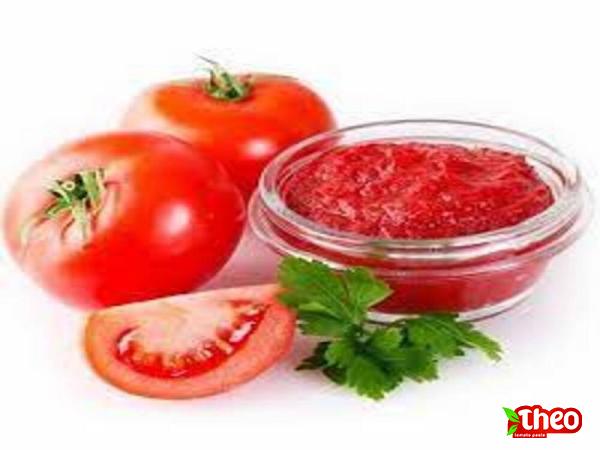 The market for canned tomatoes is expanding rapidly, driven by the increasing demand for convenient cooking solutions, the availability of year-round supply, and the versatility of canned tomato products. Canned tomatoes are widely used not only in households but also in restaurants, food processing facilities, and other food service establishments. This growing demand is a testament to the enduring popularity and indispensability of canned tomatoes for making sauces. 2. Key Players in the Canned Tomato Industry Several key players dominate the canned tomato industry, including established brands such as Hunt’s, Muir Glen, San Marzano, Cento, and Red Gold. These companies have built a reputation for producing high-quality canned tomatoes that consistently meet customer expectations. They often source tomatoes from specific regions known for their superior flavor and quality, ensuring product consistency and consumer trust. 3. Industry Trends and Innovations The canned tomato industry is not immune to trends and innovations. One notable trend in recent years is the increasing demand for organic and sustainably sourced canned tomatoes. As consumers become more health-conscious and environmentally aware, they are seeking options that align with their values. Consequently, many companies have introduced organic and sustainably produced canned tomato products to cater to this growing market segment. 4. Global Sourcing and Supply Chain Management The supply chain for canned tomatoes involves a network of farmers, processors, and distributors working together to ensure a steady flow of quality tomatoes. While Italy is renowned for its San Marzano variety, other regions around the world, including California in the United States, Spain, and China, also contribute significantly to the global production of canned tomatoes. Efficient supply chain management plays a crucial role in maintaining consistency and reliability in the availability of canned tomatoes for sauce production. 5. Pricing Dynamics and Competitive Landscape The pricing of canned tomatoes varies depending on factors such as quality, packaging, brand reputation, and market demand. While some premium brands may command higher prices due to their superior quality and sourcing methods, there are also budget-friendly options available in the market. Competition among manufacturers and private label brands further drives pricing dynamics, offering consumers a range of choices within their budget. 6. Labeling and Consumer Transparency Labeling plays a vital role in conveying information to consumers, including the source of tomatoes, nutritional content, and any additives or preservatives used in the canning process. Many consumers today prioritize transparency and look for labels that indicate non-GMO, organic, or sustainably sourced ingredients. Clear and informative labeling helps consumers make informed choices and builds trust between brands and consumers.
The market for canned tomatoes is expanding rapidly, driven by the increasing demand for convenient cooking solutions, the availability of year-round supply, and the versatility of canned tomato products. Canned tomatoes are widely used not only in households but also in restaurants, food processing facilities, and other food service establishments. This growing demand is a testament to the enduring popularity and indispensability of canned tomatoes for making sauces. 2. Key Players in the Canned Tomato Industry Several key players dominate the canned tomato industry, including established brands such as Hunt’s, Muir Glen, San Marzano, Cento, and Red Gold. These companies have built a reputation for producing high-quality canned tomatoes that consistently meet customer expectations. They often source tomatoes from specific regions known for their superior flavor and quality, ensuring product consistency and consumer trust. 3. Industry Trends and Innovations The canned tomato industry is not immune to trends and innovations. One notable trend in recent years is the increasing demand for organic and sustainably sourced canned tomatoes. As consumers become more health-conscious and environmentally aware, they are seeking options that align with their values. Consequently, many companies have introduced organic and sustainably produced canned tomato products to cater to this growing market segment. 4. Global Sourcing and Supply Chain Management The supply chain for canned tomatoes involves a network of farmers, processors, and distributors working together to ensure a steady flow of quality tomatoes. While Italy is renowned for its San Marzano variety, other regions around the world, including California in the United States, Spain, and China, also contribute significantly to the global production of canned tomatoes. Efficient supply chain management plays a crucial role in maintaining consistency and reliability in the availability of canned tomatoes for sauce production. 5. Pricing Dynamics and Competitive Landscape The pricing of canned tomatoes varies depending on factors such as quality, packaging, brand reputation, and market demand. While some premium brands may command higher prices due to their superior quality and sourcing methods, there are also budget-friendly options available in the market. Competition among manufacturers and private label brands further drives pricing dynamics, offering consumers a range of choices within their budget. 6. Labeling and Consumer Transparency Labeling plays a vital role in conveying information to consumers, including the source of tomatoes, nutritional content, and any additives or preservatives used in the canning process. Many consumers today prioritize transparency and look for labels that indicate non-GMO, organic, or sustainably sourced ingredients. Clear and informative labeling helps consumers make informed choices and builds trust between brands and consumers.
buy tomato paste
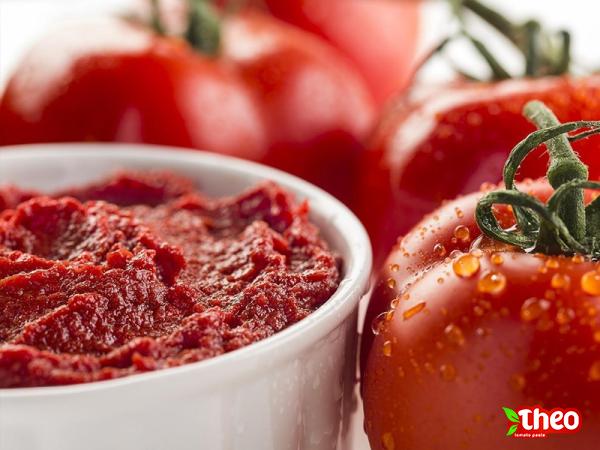 7. Food Safety and Quality Assurance Food safety is of paramount importance in the canned tomato industry. Manufacturers adhere to strict quality control protocols and standards to ensure that the tomatoes are processed and packed in hygienic conditions. Regular testing for contaminants, such as microbiological pathogens and heavy metals, is conducted at different stages of the production process to maintain the integrity and safety of canned tomatoes. 8. Packaging Innovation and Sustainability Packaging innovation plays a significant role in ensuring the longevity and quality of canned tomatoes. Cans with easy-open lids, BPA-free linings, and labels that resist moisture and fading are examples of packaging improvements that enhance consumer satisfaction. Additionally, the industry is also exploring sustainable packaging options, such as recyclable materials and reduced plastic usage, to address environmental concerns and meet consumer preferences. 9. Export Markets and International Trade Canned tomatoes are a popular export commodity, with countries like Italy, the United States, and China exporting significant volumes to meet global demand. These exports contribute to international trade and economic growth while providing access to high-quality canned tomatoes in different parts of the world. Importing countries often place strict regulations and quality standards on canned tomato products to ensure food safety and protect the interests of consumers. 10. The Impact of COVID-19 on the Canned Tomato Industry The COVID-19 pandemic had a mixed impact on the canned tomato industry. While there was an initial surge in demand as consumers stockpiled staple food items, the closure of restaurants and reduced consumer spending affected the foodservice sector. However, with the increased emphasis on home cooking and pantry staples, many consumers turned to canned tomatoes for their versatility and convenience, leading to a sustained demand for canned tomato products. 11. Recipes and Cooking Inspiration Canned tomatoes open up endless possibilities for creating flavorful and delicious sauces. From classic marinara and spaghetti Bolognese to exotic curry and chili recipes, the versatility of canned tomatoes allows chefs and home cooks to experiment with various cuisines and flavors. Online platforms, cookbooks, and food blogs serve as valuable resources for recipes and cooking inspiration using canned tomatoes. 12. The Future of Canned Tomatoes: Innovation and Consumer Preferences As consumers continue to prioritize convenience, health-consciousness, and sustainability, the canned tomato industry is likely to witness further innovation to meet these evolving preferences. Increased availability of organic options, reduced sodium content, and packaging advancements are some of the areas where manufacturers may focus their efforts. The industry’s ability to adapt and cater to changing consumer needs will determine its continued growth and relevance in the culinary world. Conclusion: Canned tomatoes are an indispensable ingredient for creating flavorful and versatile sauces. With a wide range of types available and an increasing focus on quality, transparency, and sustainability, the canned tomato industry is poised for continued growth and innovation. As consumers embrace the convenience and reliability of canned tomatoes, the market will continue to evolve, offering opportunities for manufacturers, retailers, and consumers alike.
7. Food Safety and Quality Assurance Food safety is of paramount importance in the canned tomato industry. Manufacturers adhere to strict quality control protocols and standards to ensure that the tomatoes are processed and packed in hygienic conditions. Regular testing for contaminants, such as microbiological pathogens and heavy metals, is conducted at different stages of the production process to maintain the integrity and safety of canned tomatoes. 8. Packaging Innovation and Sustainability Packaging innovation plays a significant role in ensuring the longevity and quality of canned tomatoes. Cans with easy-open lids, BPA-free linings, and labels that resist moisture and fading are examples of packaging improvements that enhance consumer satisfaction. Additionally, the industry is also exploring sustainable packaging options, such as recyclable materials and reduced plastic usage, to address environmental concerns and meet consumer preferences. 9. Export Markets and International Trade Canned tomatoes are a popular export commodity, with countries like Italy, the United States, and China exporting significant volumes to meet global demand. These exports contribute to international trade and economic growth while providing access to high-quality canned tomatoes in different parts of the world. Importing countries often place strict regulations and quality standards on canned tomato products to ensure food safety and protect the interests of consumers. 10. The Impact of COVID-19 on the Canned Tomato Industry The COVID-19 pandemic had a mixed impact on the canned tomato industry. While there was an initial surge in demand as consumers stockpiled staple food items, the closure of restaurants and reduced consumer spending affected the foodservice sector. However, with the increased emphasis on home cooking and pantry staples, many consumers turned to canned tomatoes for their versatility and convenience, leading to a sustained demand for canned tomato products. 11. Recipes and Cooking Inspiration Canned tomatoes open up endless possibilities for creating flavorful and delicious sauces. From classic marinara and spaghetti Bolognese to exotic curry and chili recipes, the versatility of canned tomatoes allows chefs and home cooks to experiment with various cuisines and flavors. Online platforms, cookbooks, and food blogs serve as valuable resources for recipes and cooking inspiration using canned tomatoes. 12. The Future of Canned Tomatoes: Innovation and Consumer Preferences As consumers continue to prioritize convenience, health-consciousness, and sustainability, the canned tomato industry is likely to witness further innovation to meet these evolving preferences. Increased availability of organic options, reduced sodium content, and packaging advancements are some of the areas where manufacturers may focus their efforts. The industry’s ability to adapt and cater to changing consumer needs will determine its continued growth and relevance in the culinary world. Conclusion: Canned tomatoes are an indispensable ingredient for creating flavorful and versatile sauces. With a wide range of types available and an increasing focus on quality, transparency, and sustainability, the canned tomato industry is poised for continued growth and innovation. As consumers embrace the convenience and reliability of canned tomatoes, the market will continue to evolve, offering opportunities for manufacturers, retailers, and consumers alike.



